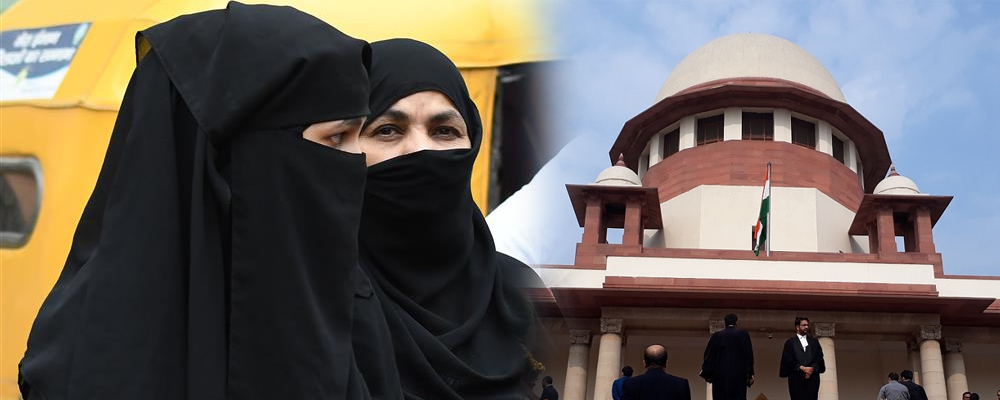Recently, the Supreme Court Bench headed by Justices Sanjay Kishan Kaul and MM Sundersh observed that “prima facie this (Talaq-e-Hasan) is not so improper. Women also have an option, Khula is there” as an oral remark by Justice Kaul.
In Talaq-e-Hasan, practiced under Islam, a man can divorce his wife by pronouncing “Talaq” once a month for three months, as per the observation made by the Hon’ble Supreme Court prima facie it is nor improper also it should not become an agenda for some other reason.
Facts-
- A Muslim woman filed a writ petition asking for a ruling that “Talaq-e-Hasan and all other types of unilateral extra-judicial Talaq” are illegal since they are capricious, unreasonable, and in violation of Articles 14, 15, 21, and 25 of the Constitution.
- Under Talaq-e-Hasan a Muslim man can divorce his wife by saying the word ‘Talaq’ once a month, for three months continuously.
- The Senior Advocate for petitioner pleaded that though the Apex Court declared Triple Talaq as unconstitutional, the issue of Talaq-e-Hasan was left undecided.
- During the hearing of the petition, petitioner was informed that the women also have the right of a similar nature in the form of ‘Khula’, also the courts grant a divorce by mutual consent in case there is irretrievable breakdown of marriage. The court asked the petitioner if she was willing to explore that option after taking Mehar.
- The case was filed by journalist Benazeer Heena through Advocate-on-Record Ashwani Kumar Dubey. It was alleged by the petitioner that her husband sent her the first Talaq through a speed post on April 19th and the other two in the subsequent months.
Need A Legal Advice
The internet is not a lawyer and neither are you. Talk to a real lawyer about your legal issue

- She was informed by the court of the options of Talaq available to her through Khula, divorce by mutual consent, also there is an option of Mubarat which is permissible by the consent.
- It was argued in the plea that the practice of Talaq-e-Hasan and other forms of unilateral extra-judicial Talaq is neither in accordance with human rights or the principles of gender equality, nor is it an integral part of the Islamic faith.
- It was also argued that many Islamic countries have restricted such practice, however in India it still continues to affect the rights of Muslim women in India. Also due to these one-sided arbitrary decisions of divorce lives of many children as well as females are also affected.
- Through plea, the central government was also urged to frame guidelines for neutral uniform grounds of divorce and uniform procedure of divorce for all citizens.
- The next hearing was scheduled by the Bench till 29th August and the petitioner’s counsel was asked to take instructions in the matter.
Khula under Muslim Law-
- The literal meaning of Khula is to ‘lay down’ before the law. The husband lays down his right to divorce to his wife.
- Khula is a divorce with mutual consent of both the parties, where the divorce proceedings are initiated by the wife, where she agrees to give some consideration to her husband.
- Thus, basically it is a “redemption” of the contract of marriage.
- It has been aptly defined in the case of [Moonshee-Buzlu-ul-Raheem v Lateefutoonissa ( 8 MIA 395, 399
- )], as Khula is a divorce with the consent and at the instance of the wife, in which she gives or agrees to give some consideration to her husband in lieu of the end of marriage.
Mubarat under the Muslim Law-
- Under this method if the husband and wife are not ready to live under the same roof anymore and wish to get separated as soon as possible through the dissolution of their marriage, either of them can make the offer to the other spouse. The other party must need to accept the proposal for divorce.
Lead India provides you with a team of experienced advocates who have been successfully dealing with issues related to family law, including divorce cases, child custody battles, maintenance, etc. If you seek legal advice or assistance for the same you may contact us.





 Talk to a Lawyer
Talk to a Lawyer